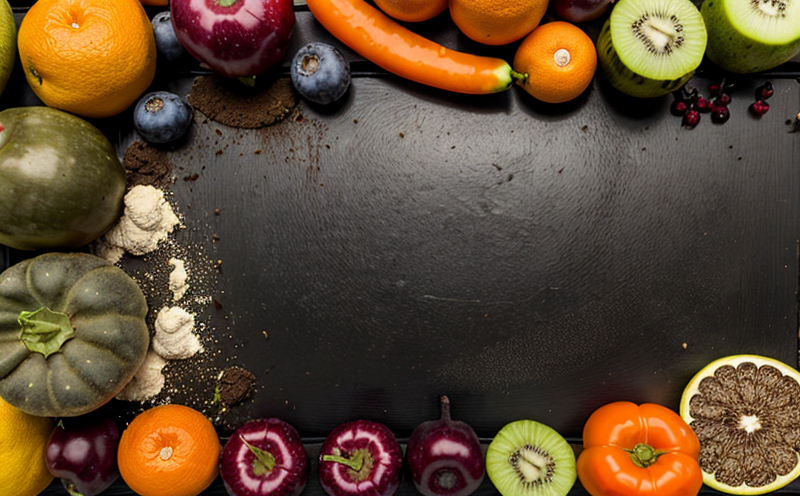AOAC 993.31 Vitamin C Quantification in Citrus Products
The AOAC International Method 993.31 is a widely recognized standard for quantifying ascorbic acid (Vitamin C) in citrus products. This method provides a precise and reliable way to measure the amount of Vitamin C present, which is crucial for ensuring product quality and compliance with nutritional labeling regulations.
Ascorbic acid is a key nutrient found naturally in fruits like oranges, lemons, grapefruits, and other citrus varieties. It plays an important role in human health by supporting immune function, collagen production, and overall metabolism. In the food industry, accurate quantification of Vitamin C helps manufacturers meet consumer expectations regarding product quality and nutritional content.
The AOAC 993.31 method involves the following steps: extraction of ascorbic acid from citrus samples using a suitable solvent, followed by titration against potassium iodide to determine the concentration of Vitamin C. This process ensures that every sample undergoes standardized procedures, thereby providing consistent results across different batches and locations.
Our laboratory adheres strictly to this methodology to ensure accurate measurements. By leveraging advanced analytical techniques such as high-performance liquid chromatography (HPLC), we can provide precise quantification even in complex matrices like juices or pulps. Our team of experts ensures that each step is performed according to best practices, ensuring reliable data.
Compliance with international standards is paramount when dealing with food safety and quality control issues. The AOAC 993.31 method aligns closely with ISO guidelines for vitamin analysis in dietary supplements and foods. This alignment enhances the credibility of our results and helps companies maintain regulatory compliance globally.
For research and development purposes, this test allows scientists to explore how processing methods affect Vitamin C levels. Understanding these effects can lead to improved preservation techniques that minimize nutrient loss during production processes. Additionally, it aids in developing new products formulated specifically for their vitamin content.
In summary, the AOAC 993.31 method offers a robust framework for quantifying Vitamin C in citrus products. Its precision and reliability make it indispensable for ensuring product quality while meeting both domestic and international standards.
Benefits
- Compliance with international standards for vitamin analysis in dietary supplements and foods.
- Precision quantification that supports accurate nutritional labeling and product quality assurance.
- Supports research into optimizing processing methods to preserve Vitamin C content.
- Aids in developing new citrus-based products tailored to specific nutrient profiles.
Customer Impact and Satisfaction
Our AOAC 993.31 service has significantly enhanced customer satisfaction by providing reliable, accurate data that meets regulatory requirements and enhances product quality. Quality managers appreciate the consistency in results across multiple batches, while compliance officers find peace of mind knowing they are adhering to global standards. R&D engineers benefit from detailed quantification reports which guide them towards creating healthier products.
By choosing our laboratory for your Vitamin C quantification needs, you ensure that your citrus products remain competitive in the market by offering high-quality, compliant goods. Our commitment to excellence has earned us a reputation as a trusted partner among leading food and beverage companies worldwide.
Competitive Advantage and Market Impact
Accurate quantification of Vitamin C using AOAC 993.31 not only meets regulatory requirements but also provides a competitive edge in the market. Consumers increasingly demand transparency about nutritional content, making accurate labeling essential for maintaining brand integrity.
By demonstrating compliance with international standards, food manufacturers can build trust with their customers and stakeholders. This trust translates into increased customer loyalty and potentially higher sales volumes as consumers choose products they know meet stringent quality criteria.
In terms of innovation, our service enables companies to stay ahead by supporting R&D efforts aimed at improving product formulations based on precise Vitamin C content measurements. Such advancements can lead to healthier alternatives or enhanced versions of existing products, further strengthening the company’s position in the competitive market environment.
Frequently Asked Questions
- Standardized procedures ensuring consistent results.
- Expertise in handling complex samples like citrus concentrates or blends.
- Quick turnaround times without compromising quality.





